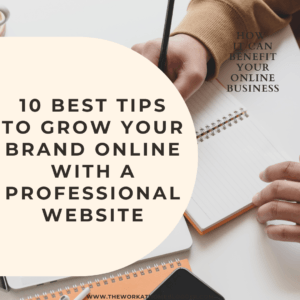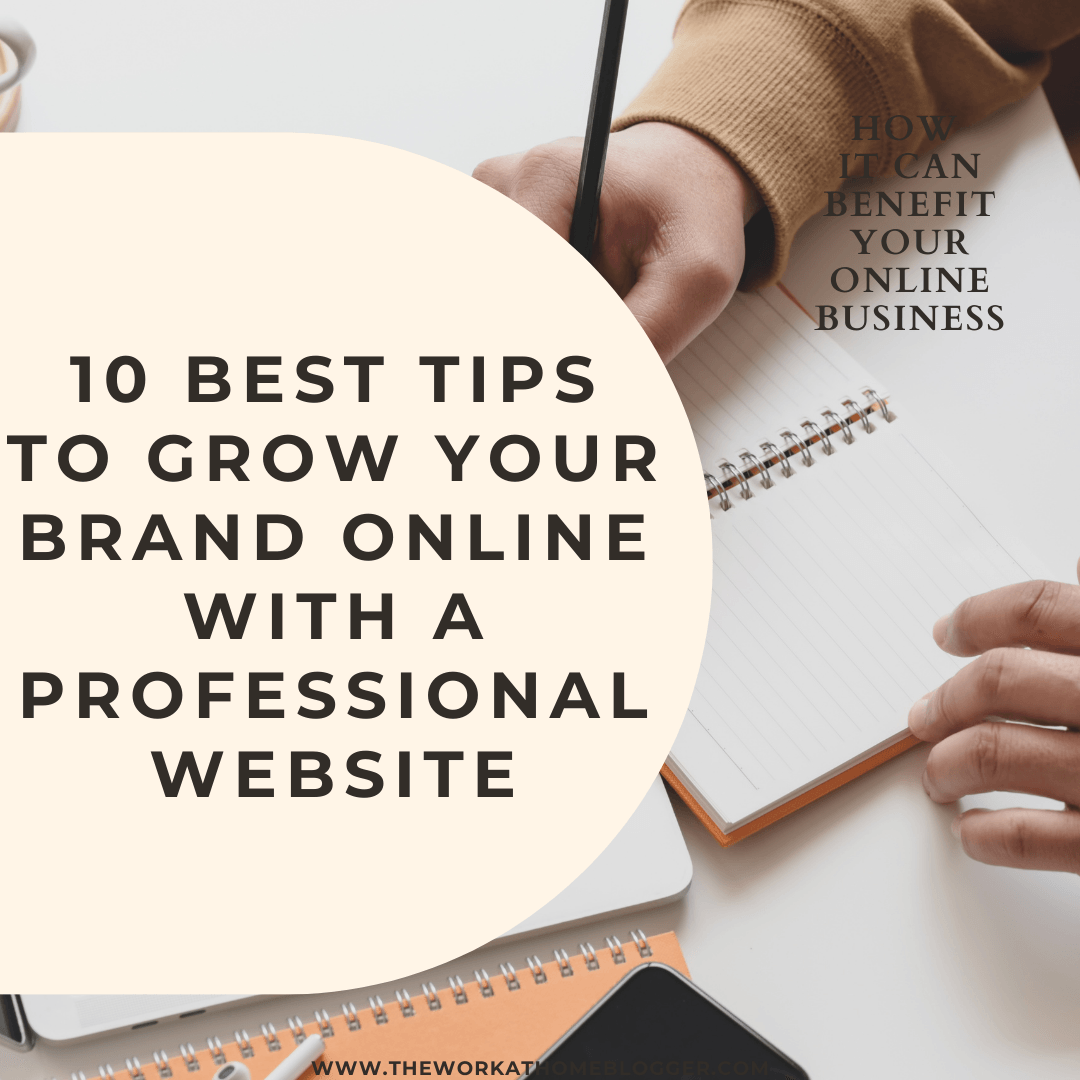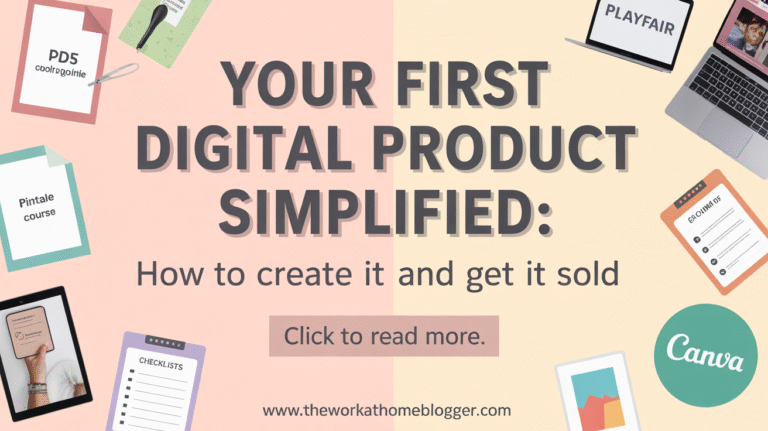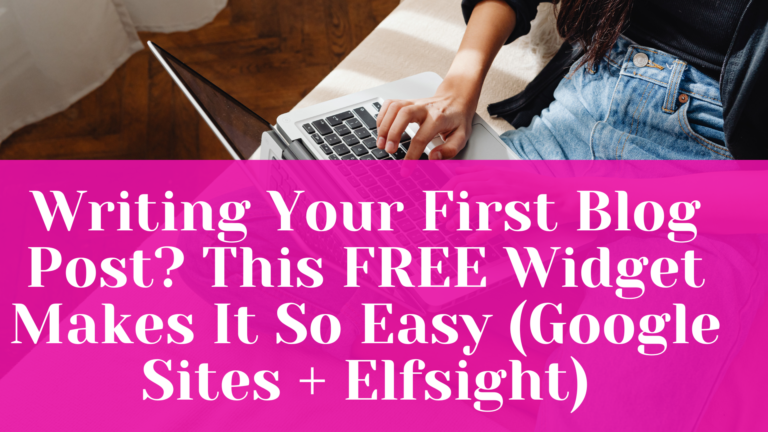Having a professional website is an absolute necessity. Your professional website is often the first point of contact for potential customers, and it plays a significant role in shaping their perception of your brand.

It’s April 2024 and you want to start a new business or you want to take your business online. And you might still be wondering if you need a website? The answer is, yes!
And now you have options of where you can build a website for a very good price. You no longer have to hire an expensive website designer to build you a website.
Yes, you can do that, but you don’t have to.
To help entrepreneurs maximize the potential of their websites, let’s explore each of the ten tips in greater detail.
Table of Contents
Tip 1: Define Your Brand Identity
With a professional website, you can start creating a cohesive and compelling brand identity which is a fundamental step. Start by defining your mission, values, and target audience.
These elements serve as the foundation for your website’s design, content, and overall messaging.
A clear brand identity ensures that your website communicates your unique selling points and resonates with your ideal customers.
Tip 2: Choose the Right Domain Name
Your domain name is not just an address; it’s a critical part of your brand identity.
Choose a domain name that aligns with your brand and is easy to remember. Avoid hyphens, numbers, or complex spellings.
A domain name that reflects your business name or primary keyword can enhance your online visibility and make it easier for visitors to find you.
Tip 3: Optimize for Search Engines (SEO)
Search Engine Optimization (SEO) is an ongoing effort that involves various strategies to improve your website’s visibility on search engines like Google.
Start by conducting keyword research to identify the terms your target audience is searching for.
Then, incorporate these keywords into your content, meta tags, and URLs. Creating high-quality, valuable content is also essential, as search engines favor websites that provide valuable information to users.
Tip 4: Mobile Responsiveness
With a growing number of users accessing websites on mobile devices, having a mobile-responsive website is no longer optional.
Ensure that your professional website adapts seamlessly to different screen sizes and orientations.
A mobile-responsive design not only improves user experience but also positively impacts your search engine rankings, as Google considers mobile-friendliness in its ranking algorithm.
Tip 5: High-Quality Content
Your website’s content is the key to engaging and retaining your audience. It’s not just about text; it includes images, videos, infographics, and other media that tell your brand’s story.
Develop a content strategy that addresses your audience’s needs and interests.
Regularly update your site with fresh, relevant content to keep visitors coming back for more.
Tip 6: User-Friendly Navigation
A well-organized and intuitive navigation structure is crucial for ensuring that visitors can easily find what they’re looking for on your website.
Your navigation menu should be clear and logically organized, and it’s essential to have an easily accessible search feature.
Reducing the time it takes for users to find the information they need helps reduce bounce rates and improves overall user engagement.
Tip 7: Invest in Professional Design
The visual aesthetics of your website have a significant impact on how visitors perceive your brand. Remember, having a professional website is key to having a significant impact on how your potential clients perceive you.
Investing in professional design ensures that your website aligns with your brand identity, uses consistent color schemes and typography, and provides a cohesive and memorable user experience.
Make sure that your website design is visually appealing, easy to navigate, and optimized for different devices.
Some website builders, such as Hostinger and Elementor, already come with already-made templates you can choose from. Choose the one that matches the branding of your business.
Tip 8: Secure Your Professional Website
Website security is a top priority in the digital age. Implement security measures such as SSL certificates to encrypt data transmission and protect user information.
Regularly update your website’s software, plugins, and themes to patch security vulnerabilities.
Strong passwords, two-factor authentication, and regular security audits are essential to safeguarding your website and building trust with your audience.
Tip 9: Social Media Integration
Social media platforms are powerful tools for expanding your online reach and engaging with your audience.
Integrating your website with your social media accounts allows visitors to easily connect with your brand on their preferred platforms.
Include social media sharing buttons on your content to encourage readers to share your posts and grow your online presence organically.
Tip 10: Analyze and Improve
Launching your website is just the beginning of your online journey. Regularly monitor your website’s performance using tools like Google Analytics.
Analyze user behavior, track traffic sources, and identify areas for improvement.
By continually refining your website based on user data and feedback, you can enhance the user experience and keep your brand competitive in the ever-evolving digital landscape.
FAQ
Q1: How much does it cost to build a professional website?
A1: The cost of building a professional website can vary widely, depending on factors such as the complexity of the project, the features you need, and the expertise you require.
You can create a basic website using website builders for a few hundred dollars, but custom websites with advanced functionality can cost several thousand dollars or more.
Consider your budget and goals when deciding on the scope of your website project.
Q2: Do I need to hire a web developer or can I build a website myself?
A2: Whether you should hire a web developer or build the website yourself depends on your technical skills, the complexity of your website, and your available time.
Website builders like Hostinger Website Builder, WordPress, Wix, and Squarespace make it possible to create websites without coding knowledge.
However, for a highly customized and optimized solution, a professional web developer can be invaluable. Make your decision based on your resources and goals.
Q3: How long does it take to see results from my website in terms of brand growth?
A3: The time it takes to see significant results from your website can vary widely based on factors such as your industry, competition, and marketing efforts.
Generally, it takes several months to a year to achieve substantial brand growth through your website.
Consistent content creation, SEO efforts, and social media promotion can help accelerate this process.
Q4: Can I use free website hosting services?
A4: Free website hosting services are available but often come with limitations in terms of customization, branding, and scalability.
To maintain a professional online presence and have better control over your brand, it’s recommended to invest in paid hosting services.
Paid hosting provides a more reliable and flexible platform for your website, offering greater opportunities for customization and growth.
Conclusion
Your website is the digital face of your brand, and these ten in-depth tips provide a comprehensive roadmap for building a professional and effective online presence.
By defining your brand identity, optimizing for search engines, creating high-quality content, ensuring mobile responsiveness, and investing in professional design, you’ll set the foundation for a successful online brand.
Secure your website, integrate it with social media, and regularly analyze user data to keep it competitive and responsive to changing digital trends.
With dedication and a well-crafted website, you’re well on your way to expanding your brand’s reach and achieving your online growth objectives. Best of luck on your journey to online brand success!







